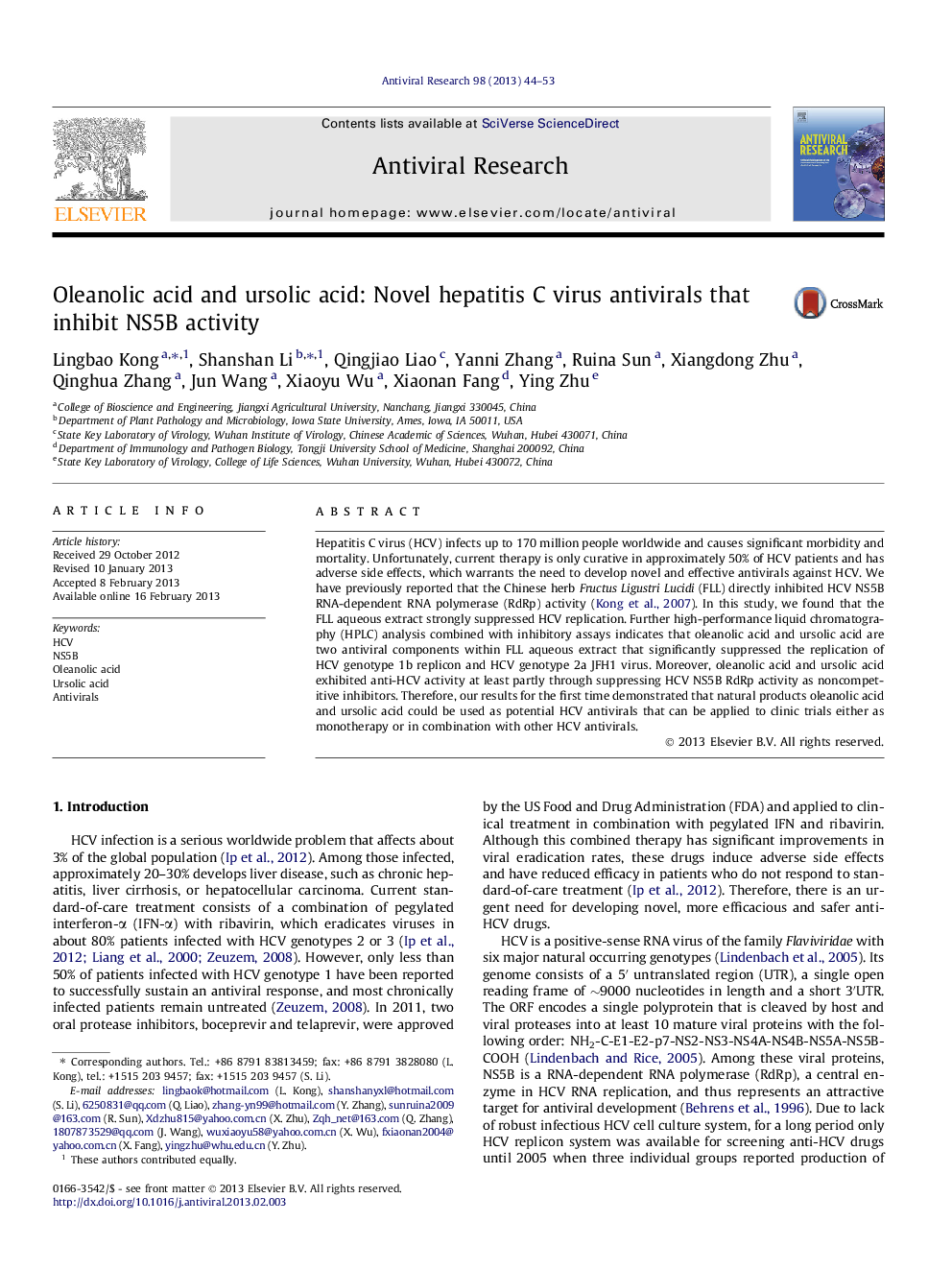| Article ID | Journal | Published Year | Pages | File Type |
|---|---|---|---|---|
| 2510003 | Antiviral Research | 2013 | 10 Pages |
Hepatitis C virus (HCV) infects up to 170 million people worldwide and causes significant morbidity and mortality. Unfortunately, current therapy is only curative in approximately 50% of HCV patients and has adverse side effects, which warrants the need to develop novel and effective antivirals against HCV. We have previously reported that the Chinese herb Fructus Ligustri Lucidi (FLL) directly inhibited HCV NS5B RNA-dependent RNA polymerase (RdRp) activity ( Kong et al., 2007). In this study, we found that the FLL aqueous extract strongly suppressed HCV replication. Further high-performance liquid chromatography (HPLC) analysis combined with inhibitory assays indicates that oleanolic acid and ursolic acid are two antiviral components within FLL aqueous extract that significantly suppressed the replication of HCV genotype 1b replicon and HCV genotype 2a JFH1 virus. Moreover, oleanolic acid and ursolic acid exhibited anti-HCV activity at least partly through suppressing HCV NS5B RdRp activity as noncompetitive inhibitors. Therefore, our results for the first time demonstrated that natural products oleanolic acid and ursolic acid could be used as potential HCV antivirals that can be applied to clinic trials either as monotherapy or in combination with other HCV antivirals.
► The Chinese herb Fructus Ligustri Lucidi (FLL) aqueous extract significantly inhibits HCV replication. ► Ursolic acid and oleanolic acid are anti-HCV components within FLL aqueous extract. ► Ursolic acid and oleanolic acid directly inhibits HCV NS5B activity as noncompetitive inhibitors. ► Ursolic acid and oleanolic acid were demonstrated to be potential broad-spectrum antivirals.
